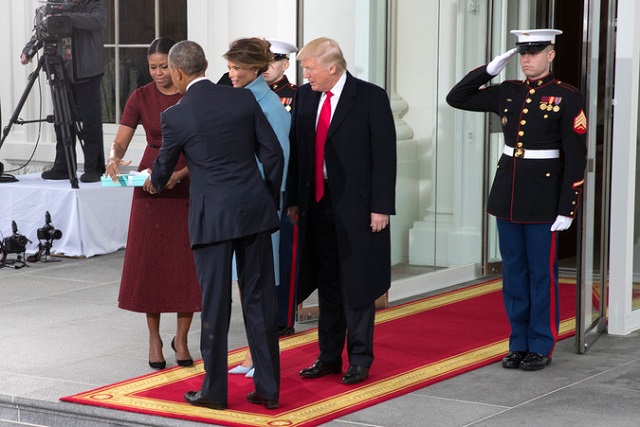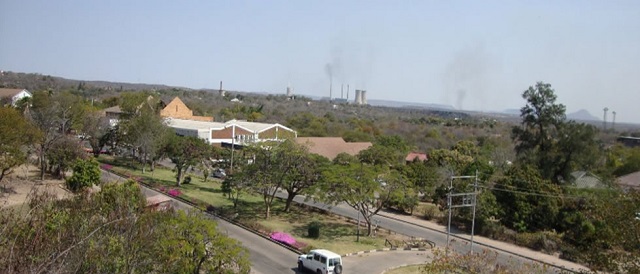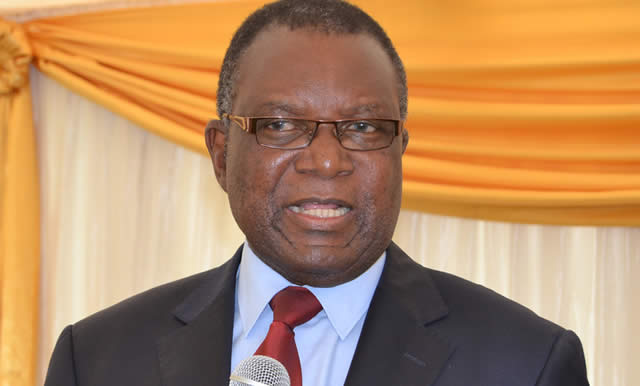Which way, America, under Trump?

Perspective, Stephen Mpofu
The rest of the world, Africa included, no doubt waits with bated breath today to see just how America’s newest president and billionaire Mr Donald Trump who was inaugurated yesterday will navigate his political dynamics domestically and internationally.
The apparent anxieties around the globe arise out of Mr Trump’s storming into power, like a cowboy, following his election victory over Democratic candidate Mrs Hillary Clinton, which many Americans, particularly the intelligence community, say came on the back of election hacking by Russia and with that country’s president Mr Vladmir Putin playing a key role.
Mr Trump admitted lately that Russia indeed aided his electoral success but appeared in his rhetoric to applaud Mr Putin for that act by saying he would like to have any sanctions imposed on Russia by the United States, removed as he courts closer ties between the two major powers.
However, the generality of Americans appears to disagree with their president’s vis-à-vis warm relations between their country and Russia which today regard each other with red eyes as both of them compete for world supremacy.
Americans who appear more versed in geopolitical dynamics — and they include some from Mr Trump’s own Republican Party — say that any close political love affair with Russia would be dangerous.
They argue that the hacking of elections by the Russians was aimed at weakening America, the incumbent world super power, rather than at cultivating closer ties politically or economically.
In fact, in remarks after the exposure of the hacking scandal erudite American commentators have claimed that Russia’s power and influence around the world was expanding while America’s super power clout was contracting.
Tragically, however, Mr Trump does not appear to be equipped with the kind of a far-reaching political vision that goes beyond mere rhetorical expressions or actions by other world leaders.
For instance, one is left to wonder if he is worried at all by the strong angry action in Europe torched off by his description of Nato as being “obsolete”.
Damning his Nato attack, European countries including Germany said they would have none of anyone demonising the organisation whose role they held in high esteem.
Ironically, some of Mr Trump’s own fellow nationals with a better understanding of international dynamics have said Nato was vital in America’s own security.
At the same time the Iranian government has said it would not enter into any security discussions with America under Mr Trump just yet, not to mention America’s impending trade war with China under his administration.
American Trump-watchers have said the future of immediate past US President, Barack Obama’s foreign programmes — and they include the empowerment of thousands of young Africans — remain “uncertain” under the new administration.
Thus, as it watches Mr Trump’s performance in his first four-year term the outside world must be like a pregnant woman who looks forward to her delivery after nine months wondering if the child will be a still born, or a live birth, the latter in terms of the advancement of world peace and stability during Mr Trump’s presidency.
But not only that, at home Mr Trump’s domestic policy or policies appear to have rankled many minds with thousands of Americans staging demonstrations against his inauguration. A million women march was scheduled for today in Washington against what the irate women say is the new president’s “anti-women stance”.
Those Americans who are incensed by the figure of Mr Trump in the White House would appear to be riled by what, for lack of better terminology, seems to be a vindictive policy against everything that his predecessor, Obama stood for.
If, for example, his decision to abolish a health care programme, known as Obamacare, as one of his priorities on assuming power is not vengeful against that country’s first black president and son of a Kenyan father, whom he once said was not an American then, what exactly is the reason behind it considering that millions of the poor — those that are less wealthy, like Mr Trump himself and other billionaires, benefited from the health insurance programme?
Some American observers say that Mr Trump’s Republican Party does not want the health care programme to continue for “ideological reasons”.
Their objection is apparently due to the fact that the rich are made to contribute money towards the health insurance scheme for the less monied Americans as, according to them, this inflicts grievous damage to their obscene riches.
Add to that Mr Trump’s decision to get all diplomats appointed by the Obama administration to leave their jobs upon his takeover when, on the contrary, previous presidents on assuming power extended the stay of those diplomats with school-going children to wind up their affairs at foreign missions.
Also Mr Trump’s burning desire to build a wall along the border with Mexico to stop “Mexicans taking American jobs” clearly sours relations with the US’s neighbour, not to mention the controversy surrounding that wall topic and his anti-immigrants policy.
For while Mr Trump insisted during his campaign trails that Mexico would build a wall, that country has said, it will not do so.
But he appears adamant that such a wall should come into existence to separate the two countries and as such, he might ask Americans to contribute money for the construction of the wall, a decision that might cause an internal political rumpus should the Americans refuse to cough up their hard earned money for such an impregnable barrier between the two countries.
So, as things stand now locally and internationally, Mr Trump appears to be fired up by this resolution: “whether the political weather be good, whether the weather be bad I shall weather the weather.”











Comments